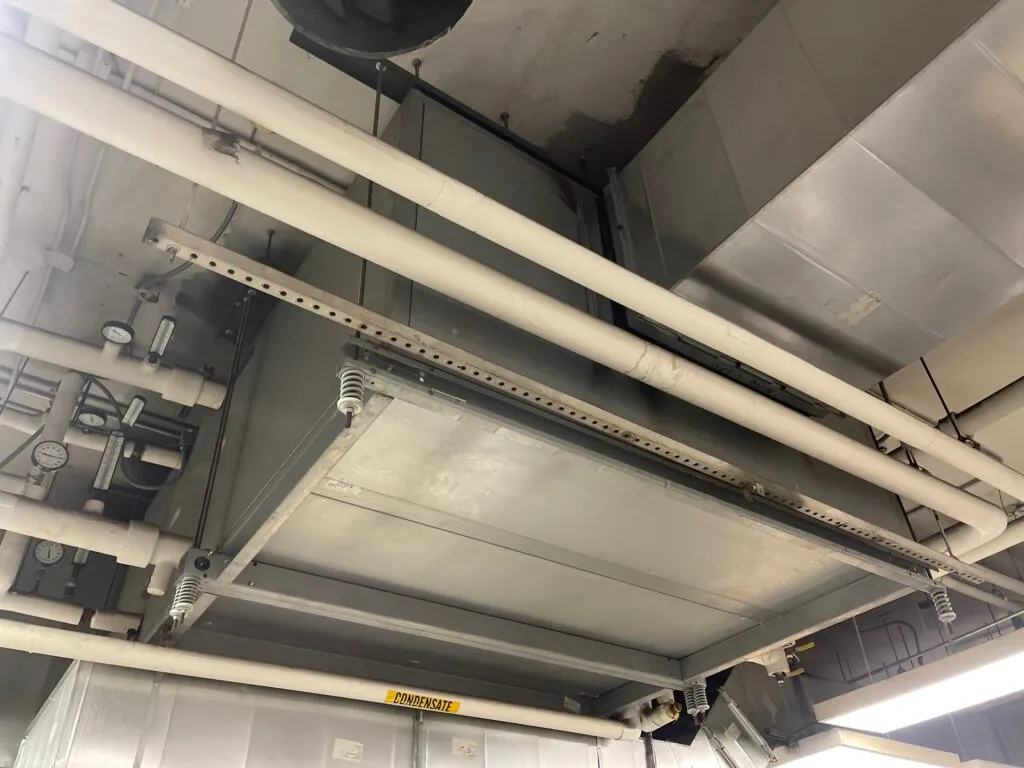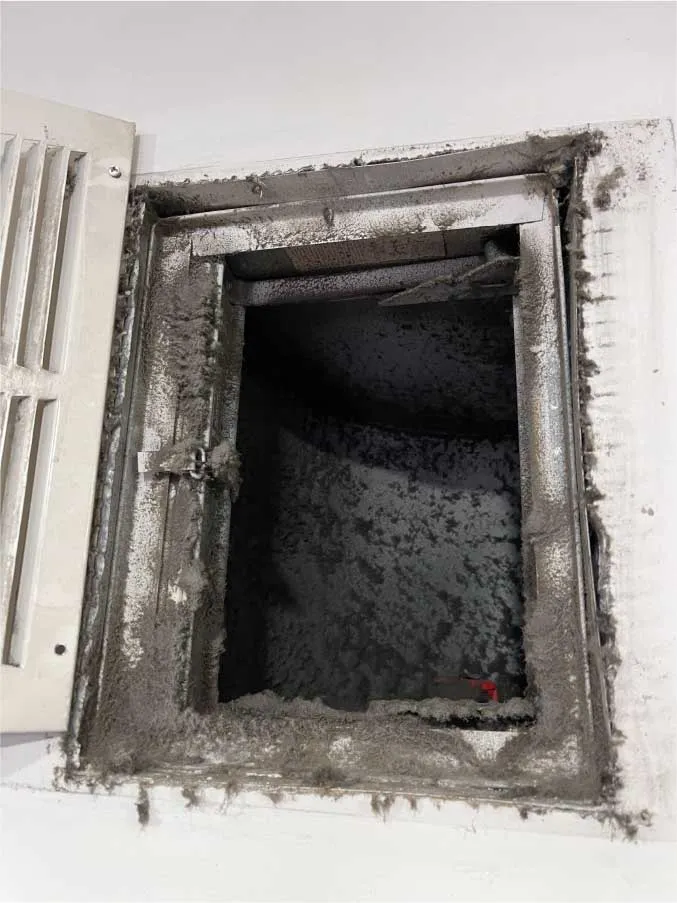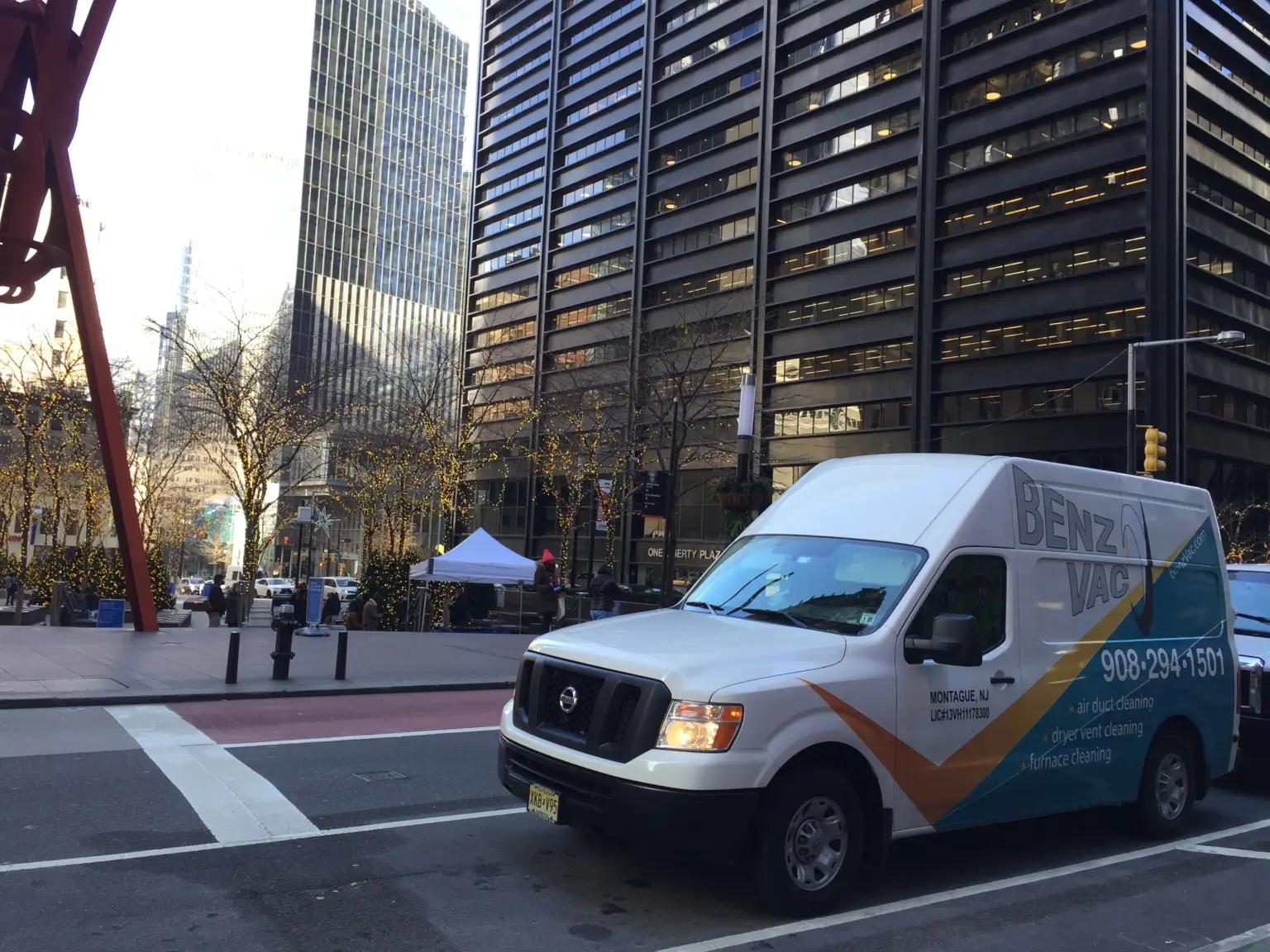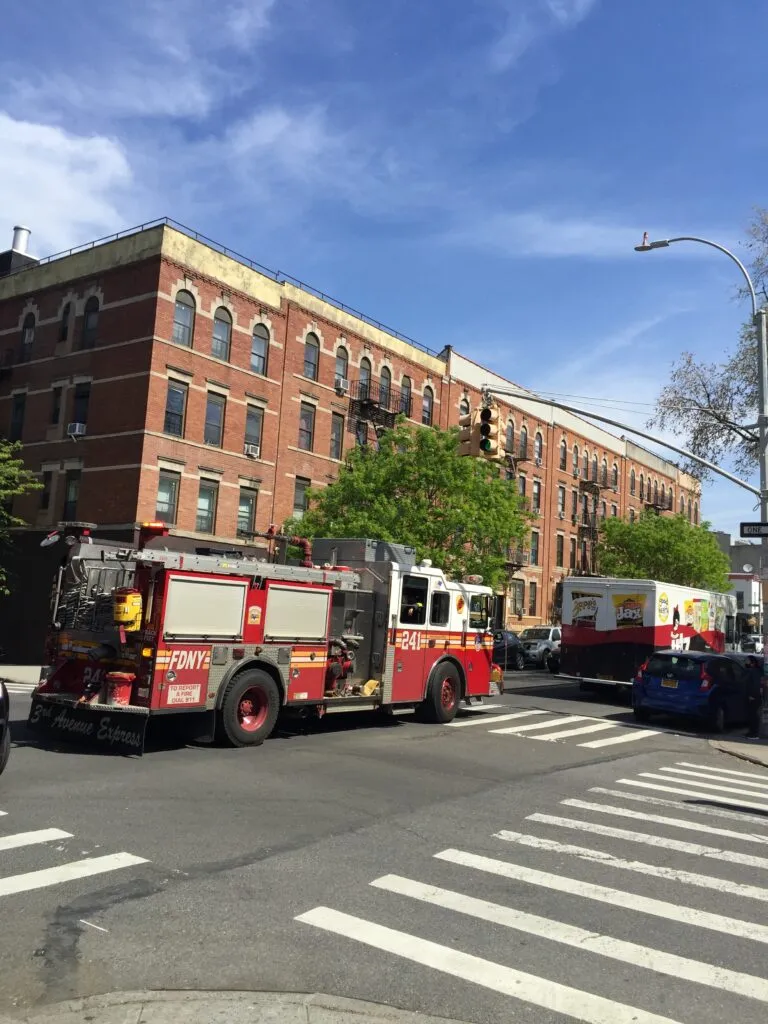Garage ventilation can save your life. Rule #1. Do not start your car with the garage doors closed.
Garage Ventilation Can Save Your Life. Let’s discuss why air duct cleaning in the garages are so important.
Gas-powered cars have killed drivers who left them running in a locked garage because they emit deadly fumes. Some of the deaths from carbon monoxide poisoning were intentional, while others occurred accidentally.
Gas-powered (or hybrid) cars are known to be dangerous.
What Happens If You Start Your Car With Closed Garage Doors?
Even with the garage door fully open, carbon monoxide levels can quickly reach deadly levels when a car is running in a garage. The gas will stay in the garage for hours if you close the door, or if you have an attached garage, it will leak into your home and poison you and your pets.
Thus, the garage air inside the housecontaminates your indoor home air quality. It’s possible that the poisoning will be minor or not. Variables can be sensitive to gas. You can claim that you are safe because your living room has a carbon monoxide detector. No, not always.
As the gas builds up in your house over time, your family members won’t be able to locate a possible carbon monoxide source (the source probably departed hours earlier) and will likely think the alarm is malfunctioning.
The Risks of Carbon Monoxide Poisoning in a Garage
Although a lot of people understand the risks associated with carbon monoxide poisoning, they might not be aware that it can occur in thesis own homes. Fuel combustion results in the release of the colorless, odorless gas known as carbon monoxide.
Operating a gas-powered vehicle in a garage, for example, can result in the lethal buildup of carbon monoxide gas. In the absence of adequate garage ventilation, the gas can reach deadly levels. Sometimes, illness and death occur suddenly.
This frequently happens in garages, where owners may leave their vehicles running while performing maintenance. The garage can quickly get filled with the car’s exhaust and breathing the fumes might be fatal.
In reality, one of the most common ways that people pass away from carbon monoxide poisoning is while seated in a car in a locked garage.
Newer vehicles now emit a lot less carbon monoxide than previous vehicles. However, carbon monoxide can start to accumulate inside a car or an attached residence if it is parked in a garage or left running outside with snow covering the tailpipe.
Carbon monoxide can accumulate in the blood and take the place of oxygen in the red blood cells if someone breathes it in. Scar tissue, sickness or vomiting, headaches, blurred vision, unconsciousness, dizziness, weakness, difficulty breathing, disorientation, brain damage, heart problems, abortion, or death can all result from carbon monoxide poisoning.
Pregnant women, children, the elderly, and those suffering from heart disease, anemia, or respiratory issues are the groups of people who are most at risk of carbon monoxide poisoning.
Besides gas-powered engines, wood, propane, charcoal, and other fuels can also produce carbon monoxide. If there is inadequate ventilation, it may have negative health effects. The gas has no flavor, odor, or color.
How to Act If You Experience Symptoms of Carbon Monoxide Poisoning
It’s crucial to get medical assistance right away and get away from the source of the exposure if you suspect you might be suffering from carbon monoxide poisoning symptoms. For instance, if you are in a garage, open the door and go outside right away.
Once you are in a secure location, dial 911 or poison control. When you step outdoors for some fresh air, ask any companions who are also suffering from symptoms to stay on the phone with the operator.
If you have been exposed to carbon monoxide, avoid using any gadgets or appliances that could generate heat or flames since they could exacerbate your symptoms.
Even if your symptoms seem minor, get medical help right away since carbon monoxide poisoning can be fatal.
Avoid Carbon Monoxide Poisoning in Your Garage: Garage ventilation can save your life. Rule #1. Do not start your car with the garage doors closed.
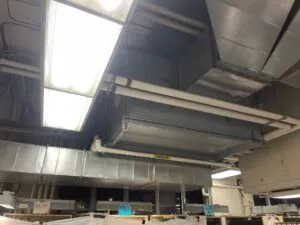 Air Duct Cleaning In The Garages: Garage ventilation can save your life. Rule #1. Do not start your car with the garage doors closed.
Air Duct Cleaning In The Garages: Garage ventilation can save your life. Rule #1. Do not start your car with the garage doors closed.
You may take a few precautions to protect yourself and your family from
carbon monoxide poisoning.
1. Garage Ventilation
The first rule is to never drive your automobile inside your garage, under any circumstances. You should also avoid cooking within your garage or burning anything indoors that hasn’t been adequately vented.
Before starting the car, get everyone inside and open the garage door, then drive off quickly.
Drive out of your garage as soon as you can after opening it. Open the garage door to let fresh air in. Garage ventilation is extremely important to remove any carbon monoxide particles settled in the air.
Garage ventilation helps in removing carbon monoxide particles from the garage’s indoor air and thus prevents you from breathing dangerous gas.
Modern vehicles frequently warm up in less than 30 seconds. On chilly days, you might wish to start your car’s engine in the driveway or use a block warmer overnight to make it ready for a drive.
Better still, if you can exhaust the garage afterward. Immediately turn off the car when you get back.
2. A Detector for Carbon Monoxide in Your Garage
Second, think about installing a CO detector in your garage. There are also designs that, when carbon monoxide levels are too high, will open the garage door immediately.
As we’ve seen, an open door won’t stop poisoning, but it might buy some extra time. The most crucial point is that a detector inside your garage will instantly notify you of the issue, preventing you from assuming the detector is broken and ignoring the alarm.
3. Garage Door
The most frequent cause of accidents in garages is the door. 30,000 injuries, including those that may lead to death, are caused by garage doors each year. You can take the following actions to protect yourself and your family from such fatal accidents.
· You can crush your fingertips if you pull down on a panel edge rather than using the door handle when opening a door manually.
· Opt for a door with finger-trap protection built into its structure.
· Make sure there is an automatic reverse in your garage door system so that the door will open if it runs into something as it closes.
· Construct a door with a safety feature that prevents it from falling if a torsion spring
fails.
· Garage door torsion springs should never be repaired by a do-it-yourselfer because they have a high risk of snapping or uncoiling suddenly.
4. Carbon Monoxide
Here is the thing: since this gas is odorless, you might not even be aware that you’re being poisoned. Here’s how to avoid issues:
· Regardless of whether the garage door is open or not, never warm up your car there.
· Avoid using gas-powered appliances or generators in the garage.
· Ensure that a carbon monoxide monitor is installed in the house adjacent to the garage and in the living space above the garage.
· When returning home late at night, avoid closing the garage door before turning off the car since you might nod off.
5. Gasoline
Explosions or fires may result from gas spills in the garage or escaping gases from a gas storage container. These recommendations can help you avoid
them:
· If you notice that your car has leaked gas, have the leak fixed right away.
· Avoid putting in a gas furnace or water heater in the garage since the gas fumes could ignite the flame and cause an explosion.
· Instead of filling up gas-powered equipment in the garage, do so outside.
· Use only approved containers for storing gasoline outside or store it in sheds.
These recommendations can be used for combustible liquids, including paint thinner and kerosene.
6. Your Automobiles
Young children enjoy playing in automobiles. Even so, they may be able to enter the vehicle and lock the door without knowing how to unlock it.
An accident may occur, particularly if the garage is warm or if the child starts the car after finding the keys inside. Here’s how to avoid issues:
· Simply, lock your cars and keep them locked so that there is no chance of your children sneaking into your cars.
· Avoid leaving your keys in the vehicle.
· You should have a tool available that allows you to break a car window to free a trapped child.
Safety Recommendations from Police
· Before starting the ignition, open the garage doors.
· When it’s freezing outside, open your car window a little to let some air in.
· Never leave kids alone in a vehicle, whether it’s running or not.
· Do not run the engine for so long with the windows open if you are in a position where your car cannot be driven on the road.
· Be careful that running vehicles in attached garages can release lethal carbon monoxide into a house. Thus, garage air inside the house can deteriorate the indoor home air qualityand impact the health of those living in the home.
What Causes Carbon Monoxide Poisoning?
If they are improperly placed, broken, or poorly maintained, common home heating and cooking appliances may emit carbon monoxide.
The following appliances can produce carbon monoxide:
· Fires of coal, wood, and gas
· Clay ovens
· Gas cookers
· Portable generators
· Gas boilers
· Paraffin or gas heaters
The accumulation of carbon monoxide can also result from using barbecues or camp stoves indoors, as well as starting up automobile engines in your garage.
Alarming Don’ts
· Never use a portable generator inside or near a house.
· Avoid letting your car warm up in the garage.
· Under no circumstances should you use outdoor cooking equipment inside.
· Never substitute an interior heat source for an exterior heat source.
· Even if the garage door is open, never leave your automobile running in the garage.
Attached and Detached Garages
An attached garage, as the name implies, is physically joined to your home, sharing a wall with it and providing access to it. A detached garage is standalone and totally unconnected to your home, whether it is a short distance away or a long distance away.
The Importance of Attached Garage Air Quality
Air quality in attached garagesis important since the area is used mostly to store items that may contain hazardous compounds and to park vehicles that emit emissions.
Since your garage is part of your home, it inevitably affects the safety of your house and the health of your family members. The following reasons make it important to monitor the air quality in your attached garage.
· Many individuals use the garage to carry out physical activities such as exercising.
· Children use the garage area to play.
· More people are using their attached garages as their primary entryways to their homes.
How Can You Improve Air Quality in Attached Garages?
Poor attached garage air quality can be mitigated by installing a Multistorey car park system. The following benefits highlight the garage ventilation importance:
· It maintains fresher air.
· This makes the garage’s temperature steadier.
· It helps eliminate VOCs.
· It reduces the amount of condensation in garages, which can lead to mold growth and mildew buildup.
The most benefits will be provided by a mechanical air ventilation system that is powered and installed in the walls or roof of your garage. Although less efficient, a passive ventilation system (such as a roof vent for a wind turbine) is nonetheless valuable.
1. Use Eco-Friendly Garage Flooring
Your home is safer if the VOC levels in your garage are maintained and kept as low as possible. Searching for more ecologically friendly products for any home renovation work is one method to do this.
The floor coating in your garage improves the aesthetics of the area while also adding protection to the floor’s surface. Any floor coating will undoubtedly contain a variety of chemicals in some combination. However, certain coatings produce more VOCs than others.
2. Put an End to Your Garage Smoking
Smoking in the garage as opposed to your main living area may appear more responsible. However, smoking in the garage continues to release benzene. A grill or other flame source shouldn’t be used in the garage, and smoking there might have negative effects on safety.
3. Avoid Using The Garage For Barbeques
Grilling in the garage is more frequent than you may imagine, even though you’d think it would be a clear no-no. The most common reason for moving a barbecue into a garage is bad weather, which allows the owner to keep dry or warm while still cooking the family’s dinner.
In such cases, a dry garage could be a more cozy and practical location to grill. But even if your barbecue is placed at your open garage door, it’s risky in a few ways.
Having an open fire in a location that is confined and has a lot of flammable things is not a good idea. Furthermore, a lot of carbon monoxide is produced by gas and charcoal grills, and this gas can easily penetrate a house.
How to Manage Dust in the Garage
1. Replace your HVAC filters
Does your garage have an HVAC or air conditioning system? In that case, it might be time to replace the filter. Filters on your air conditioner or heater assist in removing airborne particles.
The filter’s performance suffers as it gets blocked up. As a result, you have a dustier garage. The clogged filters also put extra stress on the HVAC system due to which the HVAC system consumes more energy. This increases your energy bills and requires more frequent maintenance.
2. Set Up an Air Filtration System
Multistorey car park or dust containment may be needed if your garage does not have a filtered appliance. These devices merely purify the air; they have no impact on the air temperature.
Many people remove dust and other airborne particles using electrostatic filtering equipment. In garages used as shops, filtration or containment systems are especially useful.
3. Do Not Sweep, Call for Air Duct Cleaning In The Garages
You will still need to undertake regular cleaning after you have fully cleaned your garage and taken the necessary steps to minimize and control dust. Dust and dirt are much easier to remove with a shop vacuum with a good internal filter than with a broom.
A broom may just disperse the dust in a garage, which often contains very small, nearly microscopic particles, as opposed to actually getting rid of it. To ensure that the shop vac continues to capture fine dust, clean or change the filter frequently.
It goes without saying that you must schedule air duct cleaning in the garagesevery three to five years if you have an HVAC system running in your garages.
No matter how much you try to control and reduce dust on your own, eventually you’ll need professional air duct cleaning in the garages services to thoroughly clean your ducts of any sort of dust, dirt, pollen, or any other particulate matter.
Final Thoughts
Never start your car while it is parked in the garage and the garage door is closed. Doing so releases lethal carbon monoxide particles into the garage air that can seep into your house if you have an attached garage.
You should really take care of this, as inhaling carbon monoxide can be fatal to your health. Do not forget Multistorey car park as it helps eliminate VOCs and maintains fresher air.

